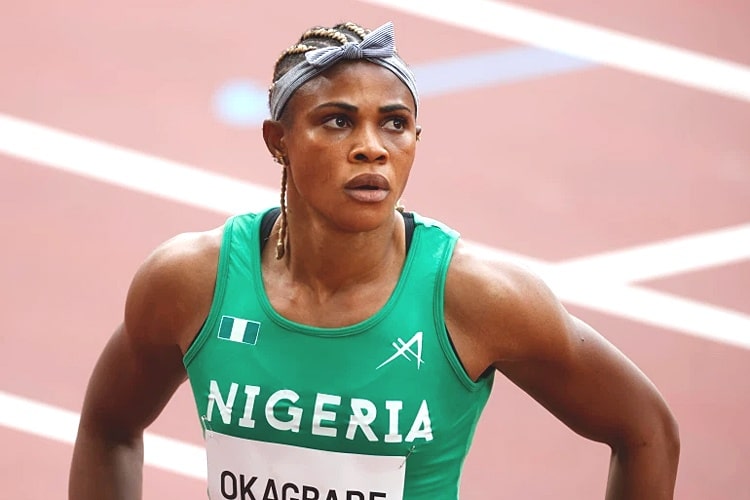In its ongoing crackdown on doping violations, the Athletics Integrity Unit (AIU) has sanctioned several Nigerian athletes over anti-doping infractions.
From promising newcomers to established Olympians, no fewer than ten Nigerian athletes have been handed bans ranging from two years to life by the AIU.
Imaobong Nse Uko – Two-Year Ban (Until July 2026)
Once hailed as the future of Nigerian sprinting, 21-year-old quarter-miler Imaobong Nse Uko has been banned for two years for “whereabouts failures.”
The AIU disclosed in its June 2025 sanctions list that Uko missed three doping tests within a 12-month window which is an automatic anti-doping rule violation.
Her ban, effective until July 23, 2026, also nullifies all her results from June 5, 2024, the date of the infraction. Uko was a triple gold medallist at the 2021 World U20 Championships in Nairobi.
Stephen Eloji – Four-Year Ban (Until June 2028)
Hurdler and sprinter Stephen Eloji received a four-year suspension after testing positive for dehydrochloromethyl-testosterone during an out-of-competition test on May 2, 2024, in Nigeria.
The 25-year-old, who had been competing on the U.S. collegiate circuit, saw his career stopped despite recent top finishes at the Music City Challenge and Pepsi Florida Relays.
Ada Princess Bright – Four-Year Ban (Until September 2027)
Ada Princess Bright tested positive for Metenolone, an anabolic steroid, during the 2023 National Athletics Trials in Benin City, Nigeria.
She had just come off a strong season that included a relay gold at the African U20 Championships in Zambia. Her ban runs until September 2027.
Grace Nwokocha – Three-Year Ban (Until August 2025)
Grace Nwokocha, tested positive for Selective Androgen Receptor Modulators (SARMs), including Ostarine and Ligandrol.
As a result, Nigeria was stripped of its women’s 4x100m relay gold from Birmingham. Nwokocha is ineligible until August 2, 2025.
Note that she was one of Nigeria’s standout sprinters at the 2022 Commonwealth Games.
Yinka Ajayi – Eight-Year Ban (Until January 2030)
Former Olympic 400m runner Yinka Ajayi is serving an eight-year ban following a positive test for Metenolone and a subsequent charge for tampering.
Initially sanctioned in 2021, the additional findings in 2024 extended her ban until January 25, 2030.
Glory Okon – Four-Year Ban (Until January 2026)
Glory Okon, known for her performance at the 2019 African U20 Championships, tested positive for Metenolone in December 2021. She has been suspended from all competitions until January 2026.
Blessing Okagbare – Ten-Year Ban (Until July 2031)
Once the golden girl of Nigerian athletics, Blessing Okagbare’s fall from grace has been one of the sport’s most notable.
After testing positive for human growth hormone and EPO in 2021, she was banned for 10 years, with additional penalties added in 2022 due to further infractions. Her ban extends through July 2031.
Divine Oduduru – Six-Year Ban (Until February 2029)
Divine Oduduru’s six-year suspension stems from a broader investigation tied to the U.S. Rodchenkov Anti-Doping Act.
He was found guilty of possessing and attempting to use prohibited substances and methods, with links to convicted doping supplier Eric Lira. Oduduru’s ban will last until February 8, 2029.
Henry Azike – Lifetime Ban
Azike, a former national-level competitor last active in 2011, received a lifetime ban after testing positive for Metenolone, his second anti-doping rule violation. Per AIU protocol, repeat offences attract automatic lifetime suspensions.
Vivian Chukwuemeka – Lifetime Ban
Two-time Olympian and Africa’s shot put record holder, Vivian Chukwuemeka, is also serving a lifetime ban.
She tested positive for Stanozolol at the 2012 National Championships, marking her second doping offence after a prior ban in 2009. Her record throw of 18.43m still stands, but her legacy is marred by her repeated violations.
